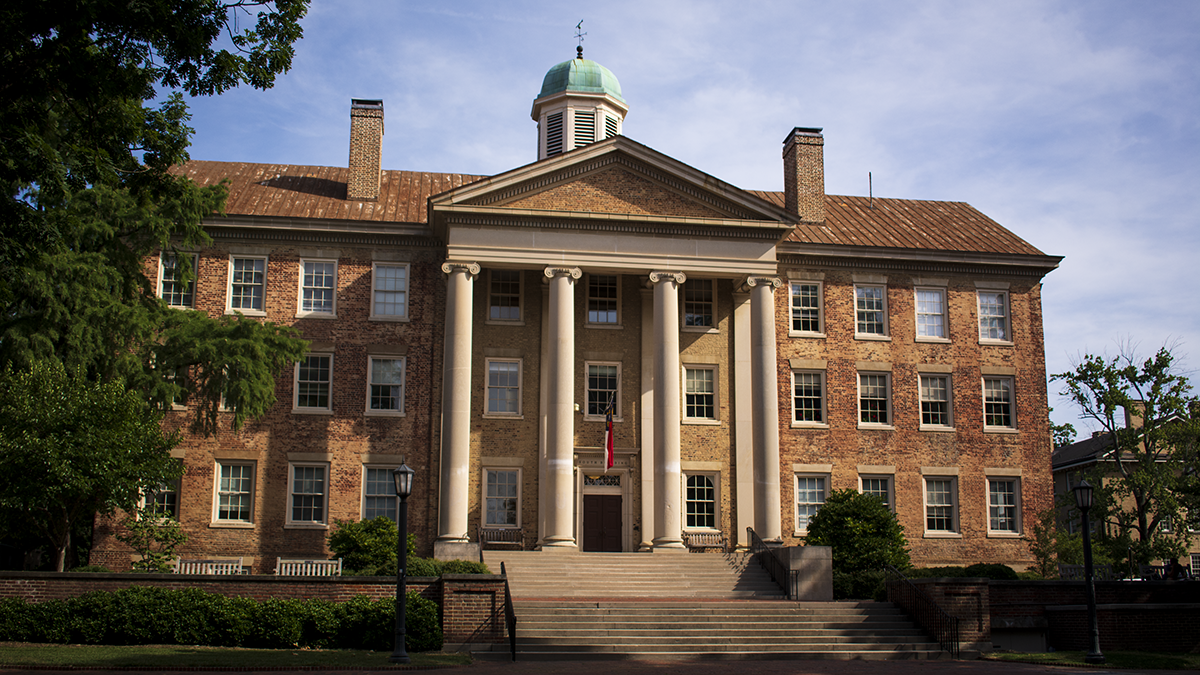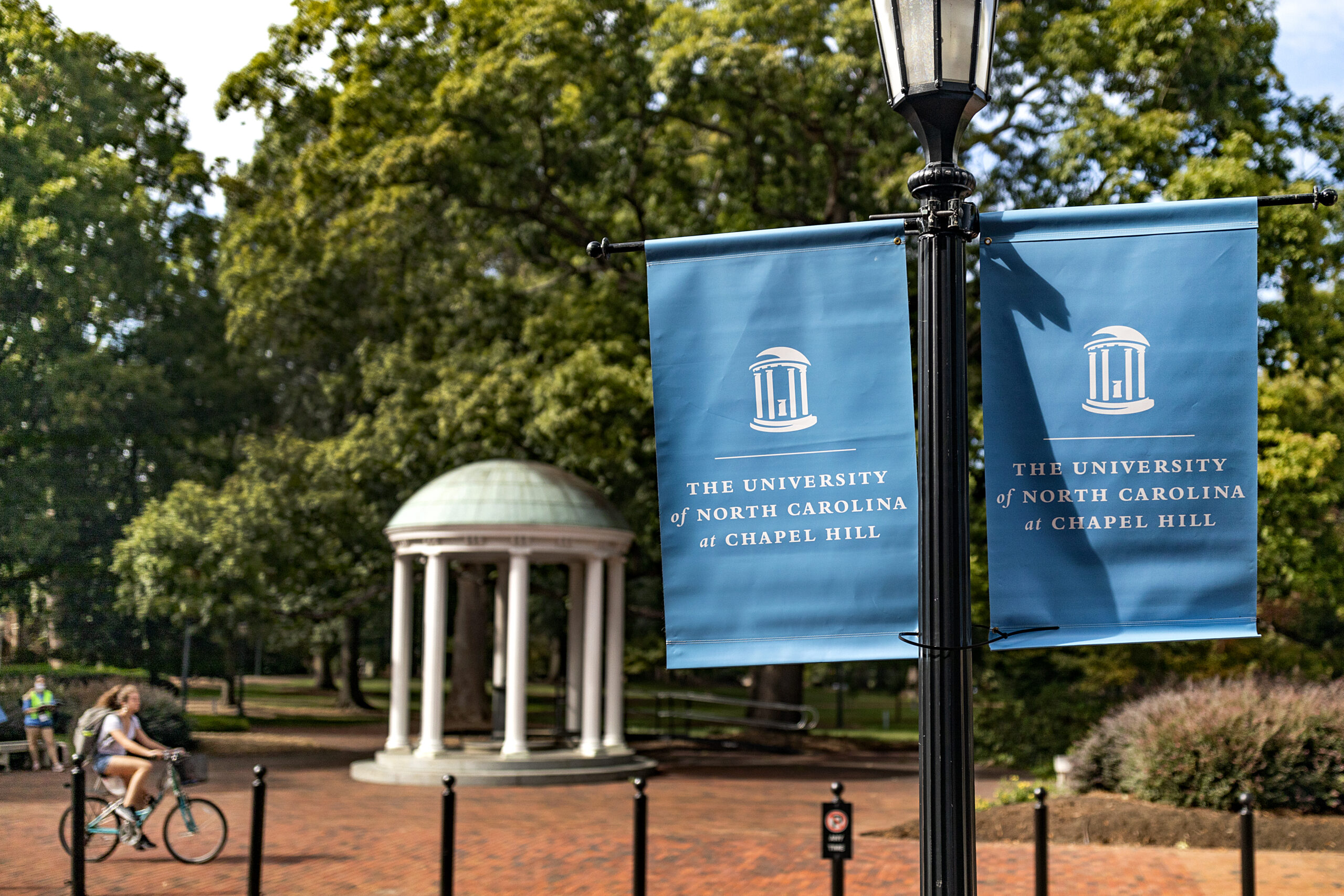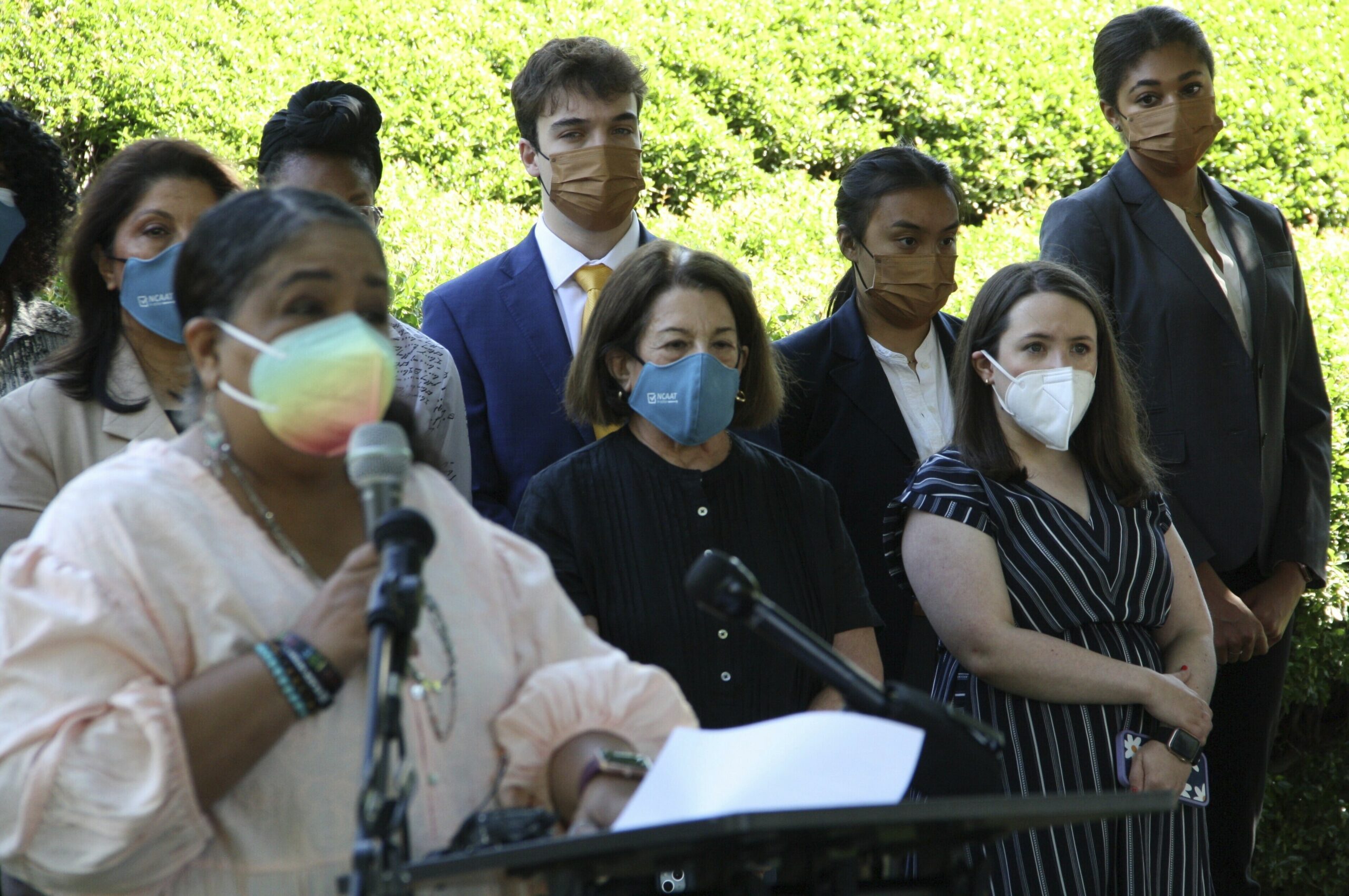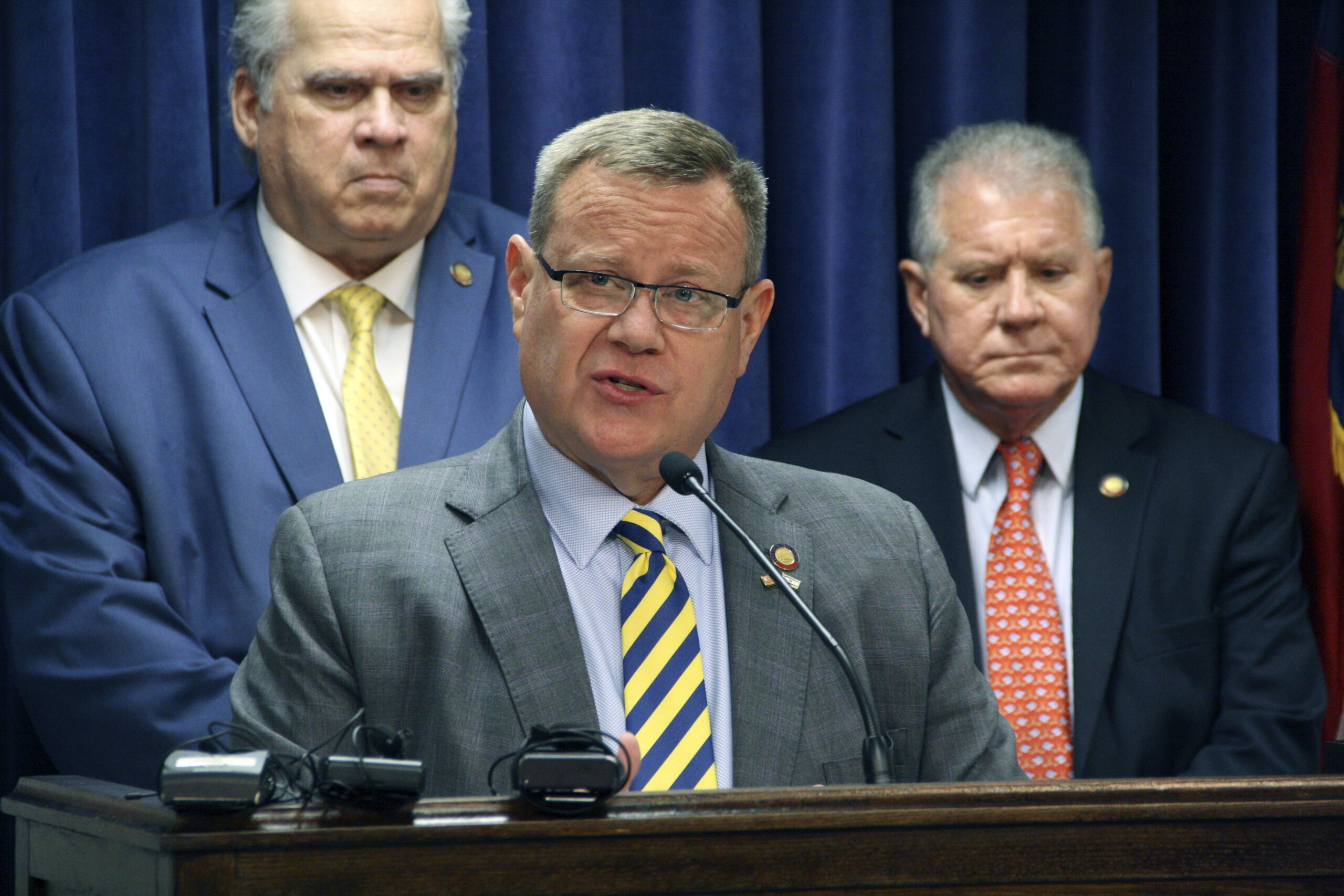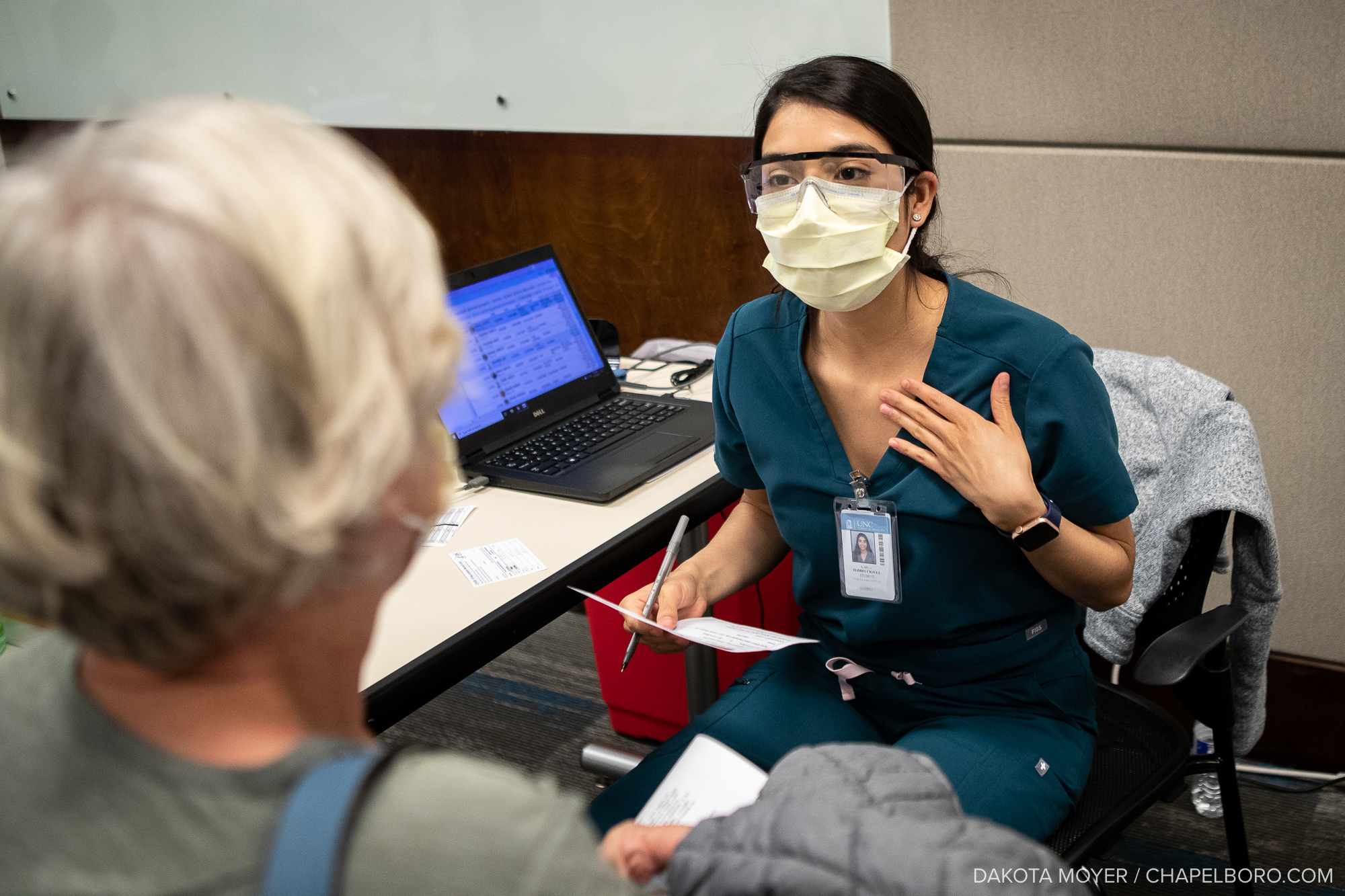The UNC Faculty Council held its final meeting of the academic year on Friday, as the university community begins to close out its spring semester. During the gathering, faculty representatives asked UNC leadership about proposed state legislation that could threaten professional dynamics and other issues as they prepare for the summer.
Much of the focus was on two bills proposed in the North Carolina House of Representatives that some faculty believe are the latest example of political interference with college education and academia. More than 670 UNC faculty members signed onto an open letter to the state government, UNC System, and UNC’s Board of Trustees detailing their belief those groups’ actions are threatening “the principles of academic freedom” – including one state proposal targeting academic tenure.
House Bill 715 says it will attempt to “prospectively eliminate” tenure to establish a uniform contracting procedure for faculty in the state. In their letter, the UNC faculty argue this is among the latest examples of an overreach by the state government into the operations and governance of college campuses.
During the faculty council meeting, UNC Chancellor Kevin Guskiewicz said he’d heard many concerns about the bill — not just from the Chapel Hill campus, but from other North Carolina chancellors. He said similar bills have been filed in the past and he plans to educate state lawmakers on the potential negative effects it would have for the UNC System.
“Eliminating tenure would be disastrous to our universities,” said Guskiewicz, “and our efforts to retain and recruit the world-class faculty that we enjoy here at Chapel Hill. And, in my opinion, it would be disastrous for the state of North Carolina.”
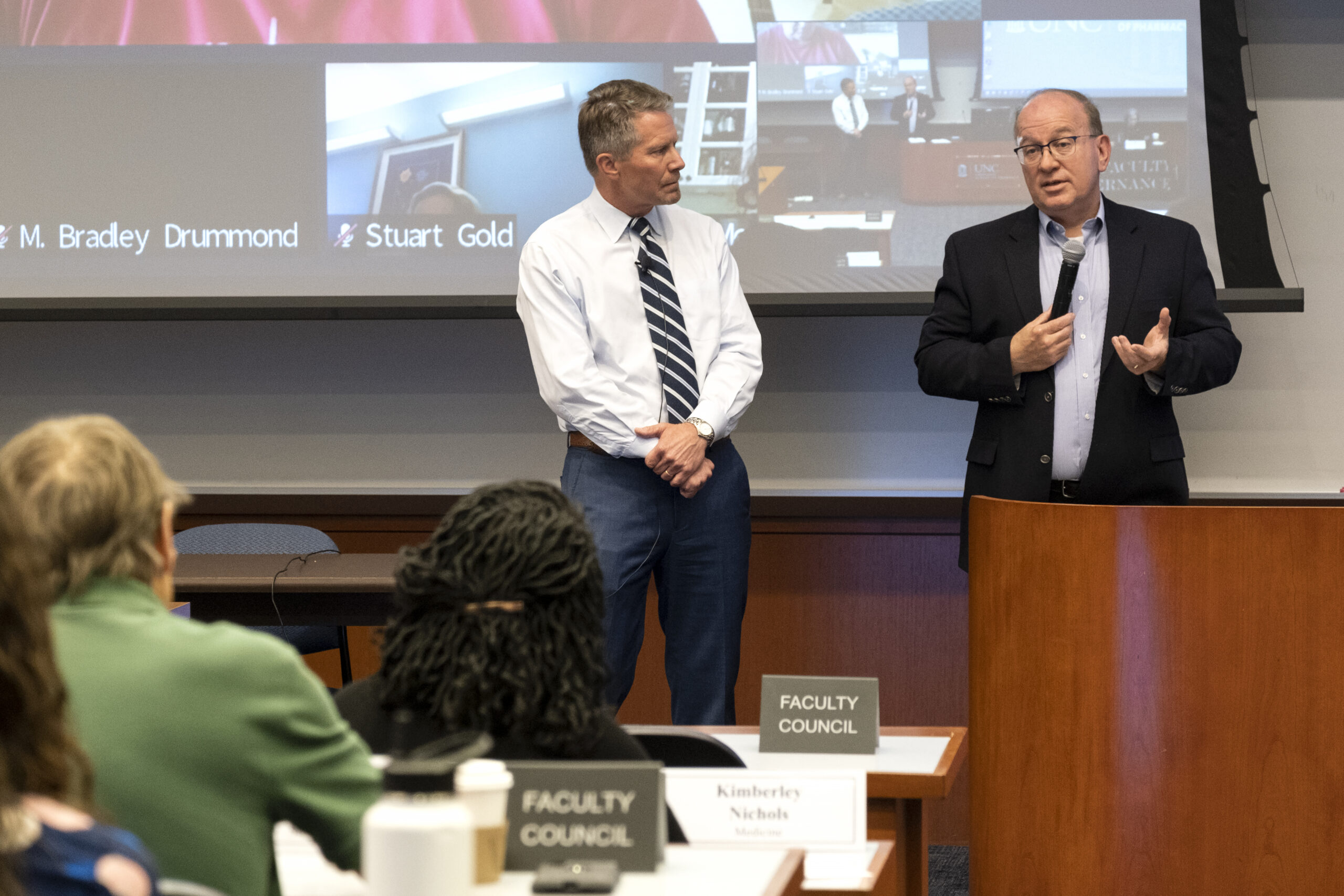
UNC Provost Chris Clemens speaks during the UNC Faculty Council meeting held at Kerr Hall on the campus of the University of North Carolina at Chapel Hill. April 21, 2023. (Photo via Jon Gardiner/UNC-Chapel Hill)
UNC Provost Chris Clemens agreed, saying that the investment in faculty represents an investment in North Carolina’s basic academic freedoms. He brought up another proposed bill, HB 96, which would create a new U.S. History class required in the curriculum of each UNC System school. Like the faculty in their open letter, Clemens called the bill “not constructive” and likely difficult to implement.
“But the bigger problem is,” the provost continued, “it reaches into a place where we have declared and consistently said it is not appropriate. The faculty determines the curriculum of the university. Even in a sketchy format that stipulates reading for a particular class, it might be appropriate for high school, but it is not appropriate for higher ed. I think it begins to erode what we think higher education is for and what it is we do [here].”
Faculty also took the chance to ask questions of the chancellor and provost about the UNC School of Civic Life and Leadership – a project for which the Board of Trustees passed a resolution supporting its creation. Clemens helped conceive and defend the school, but said the trustees’ elevation of the idea was premature. Since the board’s remarks and media appearances on the matter, UNC faculty have criticized the need for a school to highlight different ideological views – and criticized the perceived request of its creation from non-faculty members.
After fielding questions about whether UNC requested funding from the state legislature to create the school – which Clemens said it has not – the provost said any version of the School of Civil Life would still go through typical faculty governance procedures. Both he and Guskiewicz said that a committee of faculty members will be made in the fall to round out a proposal for the council to consider.
“Where we got out of order is the Board of Trustees endorsed something that hadn’t even been described fully,” said Clemens. “I think we have to back up and let the faculty build that description together. And when I say ‘the faculty,’ [I mean] initially a group of people who are interested – and maybe even people who are critical. [They] will put something together and bring it here [for consideration by the faculty council.]”
Friday’s meeting also represented the last of Mimi Chapman as the faculty council’s chair. Also the associate dean of UNC’s School of Social Work, Chapman took over the role in 2020 from Lloyd Kramer, assuming it during the turbulent summer when faculty and students were unsure of when it would be safe to return to campus amid the COVID-19 pandemic.
When she started, Chapman listed the safety, stability and reach of faculty position as being priorities for her three-year tenure. The outgoing chair acknowledged Friday, though, how difficult it was to maintain those three things – saying faculty had to dig deep in their resolve to stand up for their academic values.
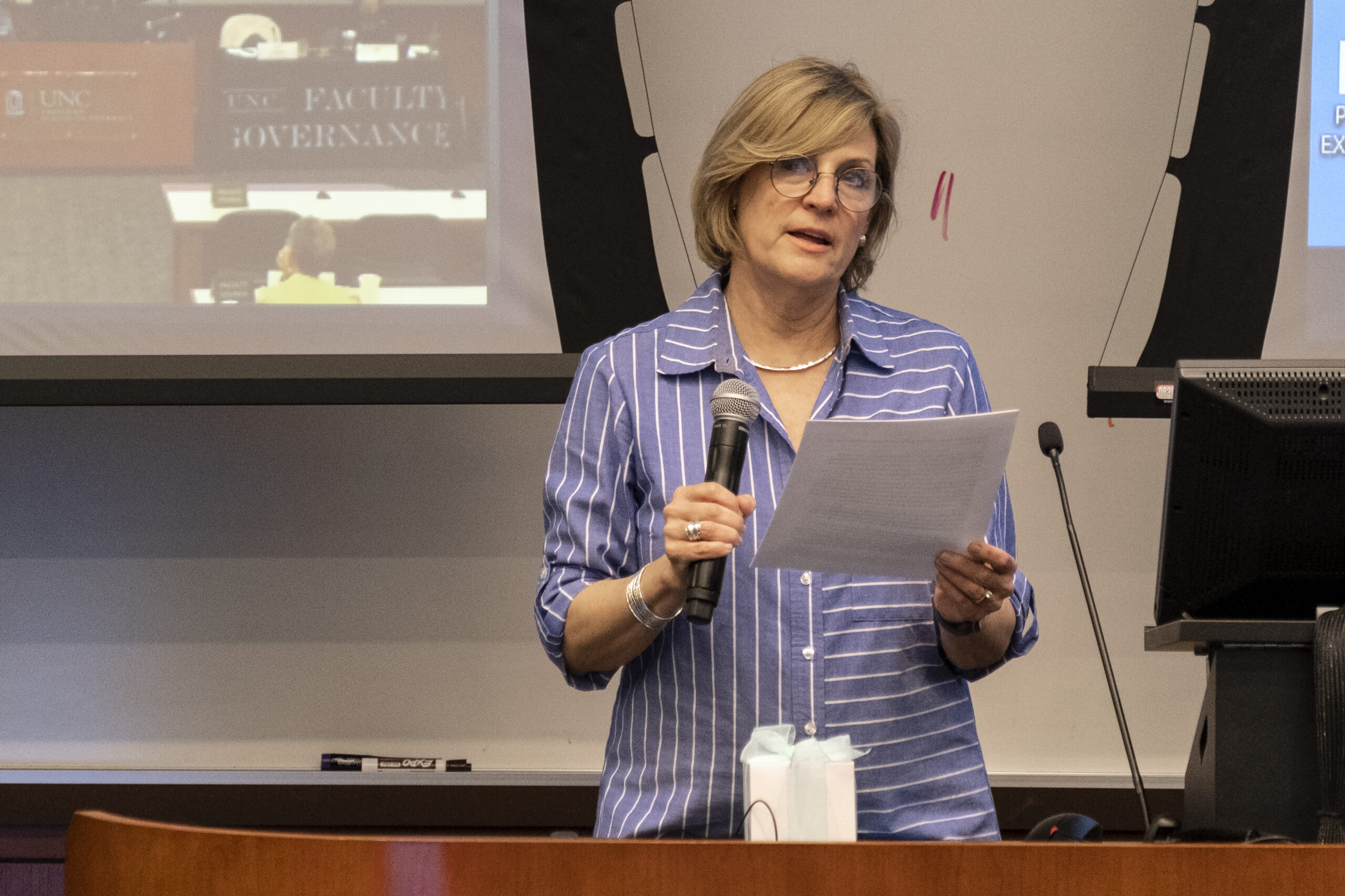
Outgoing faculty chair Mimi Chapman speaks during the UNC Faculty Council meeting held on April 21, 2023. (Photo via Jon Gardiner/UNC-Chapel Hill)
“We had to do it regarding the tenured case of Nikole Hannah-Jones,” Chapman cited. “Over 90 units on campus wrote statements affirming the faculty’s role in granting tenure and promotion. We had to do it regarding the potential, unplanned ousting of our chancellor, and hundreds of faculty members came to an emergency meeting in the summer months to avert this.
“And, of course, new issues have and are surfacing almost every day,” she added, referencing the house bills and her efforts to maintain faculty governance.
Chapman will be succeeded by Beth Moracco – the director of UNC’s Department of Public Health master’s program. The two will coordinate in coming weeks before Moracco assumes the role of chair in July.
“As faculty, we have unique perspectives,” she said during her opening comments. “We are interacting with students every day: in our classrooms, in our labs, in our offices, and with our peers and our colleagues. We really have our fingers on the pulse of what’s going on at the university and have an important voice in the future of the university. Particularly as we navigate issues of curriculum, accreditation, promotion, inclusivity, free speech, and all the issues we’re not just facing at UNC but nationally [in higher education].”
The UNC Faculty Council will reconvene for its next regular meeting in September. The full meeting from April 21 can be watched here.
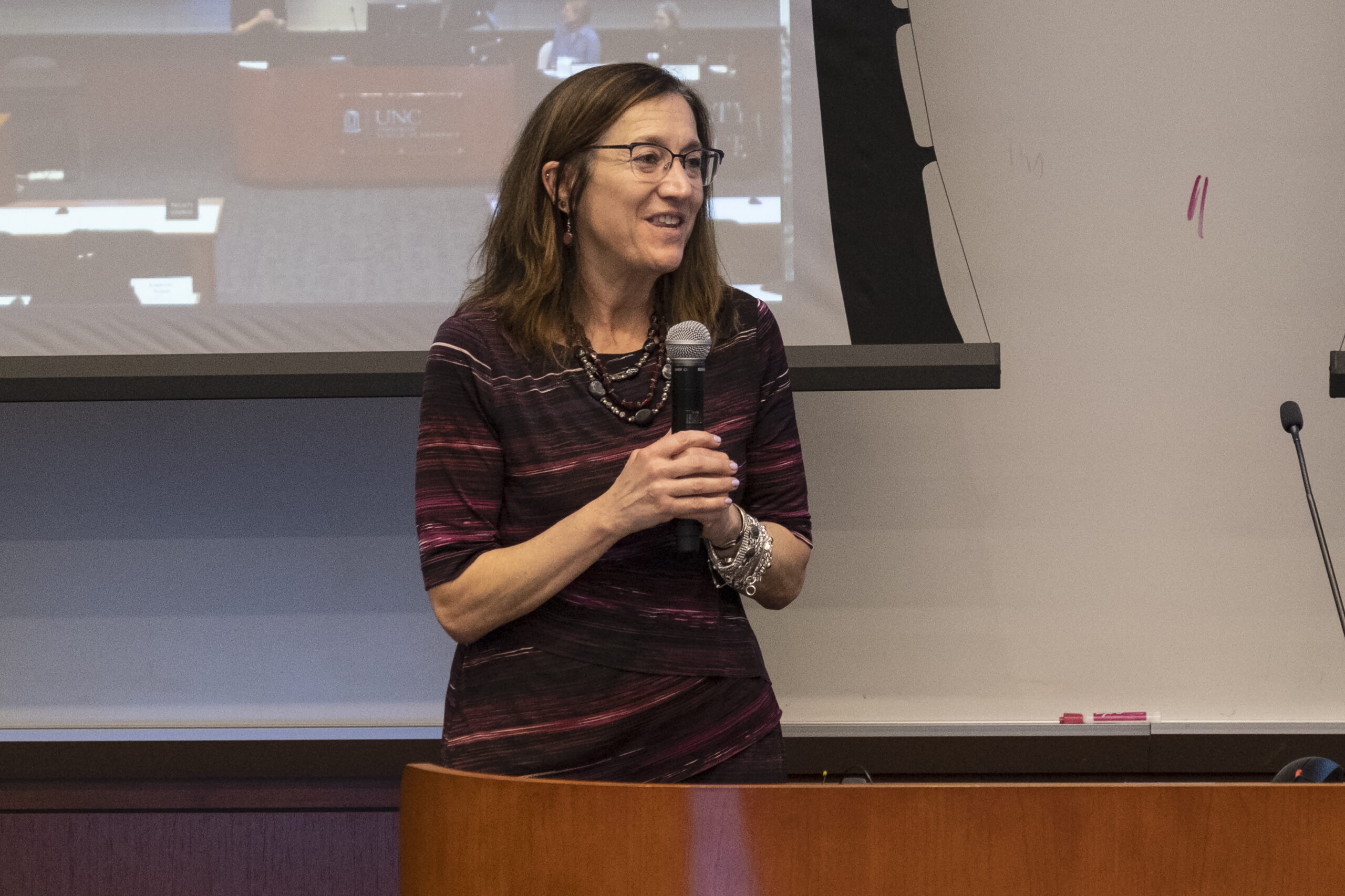
Incoming faculty chair Beth Moracco addresses the UNC Faculty Council in Kerr Hall. (Photo via Jon Gardiner/UNC-Chapel Hill)
Chapelboro.com does not charge subscription fees, and you can directly support our efforts in local journalism here. Want more of what you see on Chapelboro? Let us bring free local news and community information to you by signing up for our biweekly newsletter.

